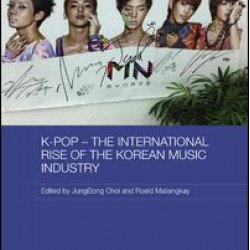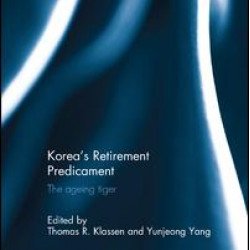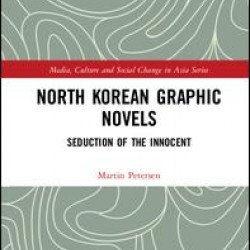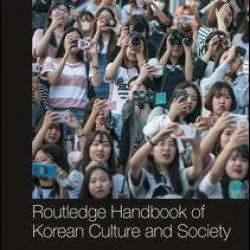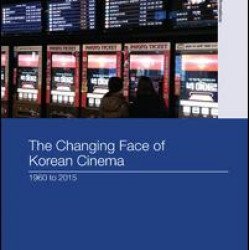Korean Culture & Society
Brand: Taylor & Francis
Model: Stock
The control and promotion of culture have been bound up with politics in Korea to a surprising degree. This book traces the development of cultural policy in South Korea from Japanese colonial rule to the present day, highlighting this strong connection to wider government policy. Amongst many other..
₹8,445.60 ₹10,557.00
Brand: Taylor & Francis
Model: Stock
K-pop, described by Time Magazine in 2012 as "South Korea’s greatest export", has rapidly achieved a large worldwide audience of devoted fans largely through distribution over the Internet. This book examines the phenomenon, and discusses the reasons for its success. It analyses pop fandom and cultu..
₹9,180.00 ₹11,475.00
Brand: Taylor & Francis
Model: Stock
K-pop, described by Time Magazine in 2012 as "South Korea’s greatest export", has rapidly achieved a large worldwide audience of devoted fans largely through distribution over the Internet. This book examines the phenomenon, and discusses the reasons for its success. It analyses pop fandom and cultu..
₹9,180.00 ₹11,475.00
Brand: Taylor & Francis
Model: Stock
K-pop, described by Time Magazine in 2012 as "South Korea’s greatest export", has rapidly achieved a large worldwide audience of devoted fans largely through distribution over the Internet. This book examines the phenomenon, and discusses the reasons for its success. It analyses pop fandom and cultu..
₹2,789.98 ₹3,487.48
Brand: Taylor & Francis
Model: Stock
Using a multi-disciplinary and comparative approach, this book studies the contractual, mandatory retirement trends and policies in South Korea, and in doing so illuminates the political, social, legal, economic and labour market implications of this widespread practice...
₹2,789.98 ₹3,487.48
Brand: Taylor & Francis
Model: Stock
This book provides an analysis of North Korean graphic novels, discussing the ideals they promote and the tensions within those ideals, and examining the reception of graphic novels in North and South Korea and beyond...
₹7,711.20 ₹9,639.00
Brand: Taylor & Francis
Model: Stock
The Routledge Handbook of Korean Culture and Society is an accessible and interdisciplinary resource that explores the formation and transformation of Korean culture and society. Each chapter provides a comprehensive and thought-provoking overview on key topics, including: compressed modernity, reli..
₹13,953.60 ₹17,441.99
Brand: Taylor & Francis
Model: Stock
This book examines how South Korean cinema has transformed from an antiquated local industry in the 1960s into a thriving international cinema in the 21st century. It investigates the circumstances that allowed these two creative eras to emerge, and demonstrates the forces behind Korea’s positioning..
₹2,716.54 ₹3,395.68
Showing 1 to 8 of 8 (1 Pages)




